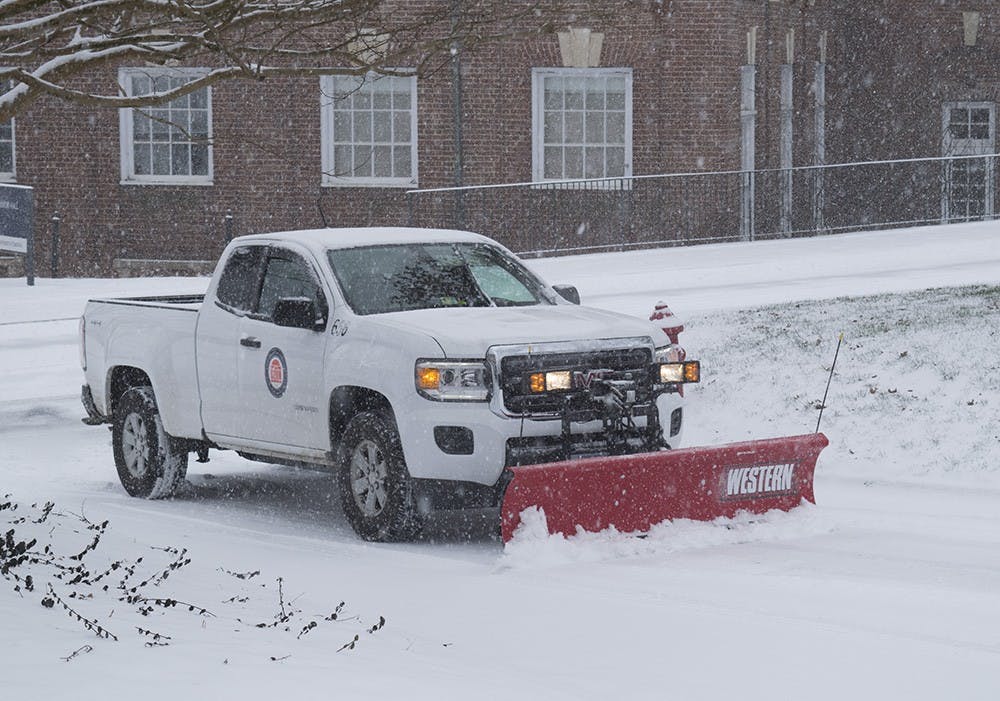Much of the state was closed this weekend as a result of Winter Storm Jonas.
The University was closed Friday after receiving a recommendation from Marge Sidebottom, the University director of emergency preparedness.
To decide to close the University, Sidebottom discusses and reviews inclement weather events with professionals from offices across grounds such as the Provost Office, Facilities Management, Business Operations and the President’s Office and University Communications, University Spokesperson Matt Charles said.
“The various offices discuss conditions across Grounds and in the surrounding community,” Charles said in an email statement. “After careful consideration, the group makes the recommendation to either maintain normal operations or adjust the operating schedule.”
Virginia State Police responded to 6,626 calls for service, 1,410 total crashes and 2,040 reports of disabled vehicles from Friday through early Sunday morning, according to a press release from Virginia State Police Spokeswoman Corinne Geller.
“We’re hoping to make significant progress. However, the temperatures will drop tonight and all of this will re-freeze,” Geller said. “So if anyone is traveling early in the morning to get to class or return to campus that is a serious concern.”
If traveling, Geller recommended adding extra time to reach travel destinations, increasing driving distances between vehicles, moving over for emergency vehicles, tow trucks and highway vehicles and cleaning all of the snow off of cars’ headlights and windows.
“Even if you can see the pavement, that’s going to freeze overnight once the temperatures drop,” Geller said. “That’s the really dangerous part about black ice. Not only is it slick, but you can’t see it until you’re on it. Ice always wins.”
University Facilities Management plows paths for students, with help from some student volunteers, Charles said.
“Facilities Management expresses their gratitude for those students who showed up to volunteer their time to help clear pathways on sidewalks and steps around Grounds,” Charles said.
The University works in conjunction with Albemarle County officials to prepare for weather events, Charles said.
“Representatives from [the University], the City of Charlottesville and Albemarle County coordinate prior to and during weather events to share information,” he said. “The University values this partnership.”
Each weather event is evaluated on an individual basis by the University to determine the risk it poses to the University community, and a final decision is then made, Charles said.
“The safety and well-being of the University community is a top priority,” Charles said. “The professionals who are involved in evaluating weather-related events will always consider first the safety of students, faculty and staff before making any recommendation to adjust the University’s operating schedule.”
Since 2009, 16 school days have been cancelled due to inclement weather, including Oct. 29 and 30 in 2012, when Hurricane Sandy posed a threat to the University community.







